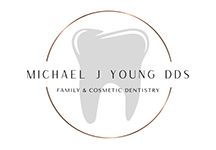 Not every habit is a bad one. Brushing and flossing your teeth, for instance, is a habit that most people have engaged in every day for most of their lives, and is an essential one for the good of your oral health. After a lifetime of repetition, however, brushing and flossing your teeth can sometimes seem more like just a habit and less like a necessary procedure. Unfortunately, the monotony can often cause you to pay a little less attention than you should, and inadequate oral hygiene is almost as dangerous as absolute neglect. Help ensure that your hygiene routine remains effective by following this advice from your Lafayette dentist, Dr. Michael Young.
Not every habit is a bad one. Brushing and flossing your teeth, for instance, is a habit that most people have engaged in every day for most of their lives, and is an essential one for the good of your oral health. After a lifetime of repetition, however, brushing and flossing your teeth can sometimes seem more like just a habit and less like a necessary procedure. Unfortunately, the monotony can often cause you to pay a little less attention than you should, and inadequate oral hygiene is almost as dangerous as absolute neglect. Help ensure that your hygiene routine remains effective by following this advice from your Lafayette dentist, Dr. Michael Young.
Brushing & Flossing for Your Smile’s Sake
There are many mistakes that people commonly make while mindlessly rubbing their teeth with a brush. A good routine involves thoroughly, but softly, brushing every surface of every tooth, especially along the gum line, to remove bacterial plaque and food debris. If you don’t pay proper attention, you can wind up missing a spot or two. Unlike sweeping your floor or wiping your counter, you can’t just come back later and pick up what you missed. After about 48 hours, dental plaque calcifies into tartar—a hardened, more stubborn form of plaque that’s impervious to your toothbrush and floss. Also, be sure to brush gently. Scrubbing too hard can cause you to strip the enamel from your teeth, leaving them vulnerable to damage and tooth decay.
Lafayette Dentist Helps You Make the Most of Your Oral Hygiene
To make sure that your mouth stays free of bacteria, plaque, and tartar, you should attend your routine dental checkup and cleaning at least once every six months. Regular dental maintenance will also allow Dr. Young to thoroughly check for early signs of trouble and treat them before significant damage is done. To learn more about protecting your smile, schedule an appointment with your Lafayette dentist by calling Dr. Young at (337) 237-6453. Located in the 70508 area, we proudly serve patients from Lafayette and all surrounding communities.

